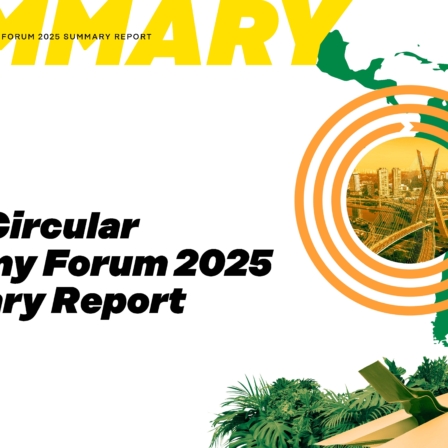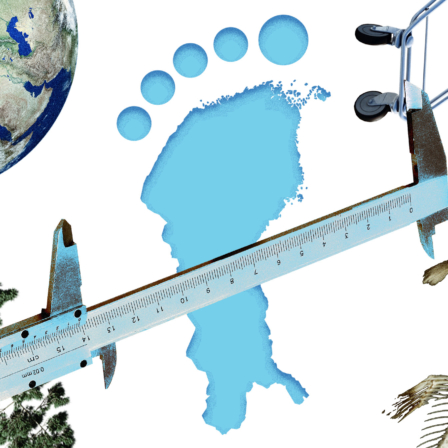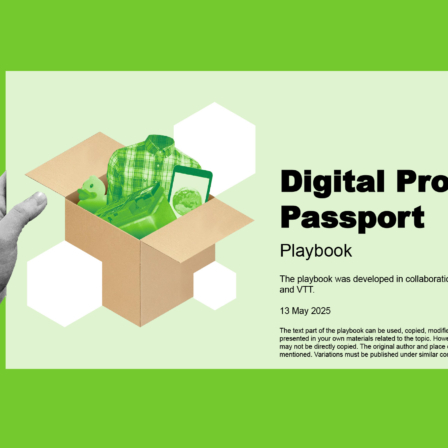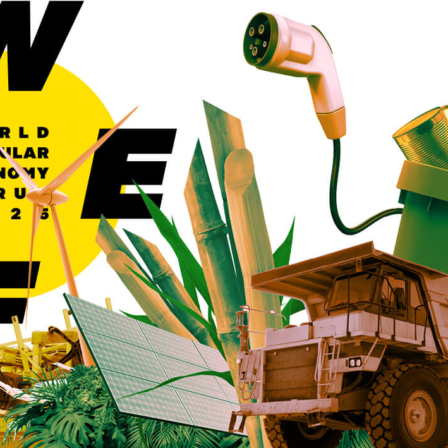The rapid development of electronics has its downsides, one of the biggest being the amount of electronic waste generated. It is difficult to estimate the exact amount of e-waste in the world, but it is certain that insufficient recycling of e-waste is a vast problem for developing countries. It has been estimated that every year Finland transports tens of thousands of tons of used electronics to developing countries where the dismantling and waste recycling processes are often quite basic. When e-waste is not dismantled in a proper manner, it releases substances very harmful to health and nature.
This is the problem researcher Azadeh Rostami decided to address one night in June when he participated in the Night of Circular Solutions Challenge, organised by Sitra in collaboration with Helsinki Think Company, the entrepreneurship society of the University of Helsinki.
The purpose of this official side event of the World Circular Economy Forum was to experiment and see what kinds of circular economy solutions can be created when teams of university students and researchers, mostly unknown to each other, throw themselves into solving four major sustainability challenges over the course of 12 hours, from 6 p.m. to 6 a.m. The challenges were alternative protein sources, the clean cycle of water, recycling in developing countries and flexible accommodation solutions for students, and the methods used were co-development and fast trials. During the night, the teams participated in workshops and were sparred by top mentors.
The intensive night culminated in the pitch finale of the challenge at 5 a.m., where Rostami’s team’s idea triumphed. Afterwards, the idea became a research project that Rostami manages together with research colleague Fiseha Tesfaye.
They aim to build a return system for e-waste that is suited to the circumstances in developing countries.
The first step is to build an easy-to-use platform between consumers and reliable recyclers for testing the system. Consumers could use the platform for providing their contact information and notifications about electronic waste that has reached the end of its life cycle to local operators that recycle precious metals in an appropriate manner and reuse equipment without burdening the environment.
Creating such transparency would be most welcome, since, at the moment, e-waste is almost always dumped in developing countries illegally, according to Eettisen kaupan puolesta ry, an association promoting ethical trade, in its 2013 study “Kaukainen kaatopaikka” (“Dumping sites far away”; link in Finnish). The report highlights that, currently, when operations are carried out as part of the grey economy, information on the transactions may not be recorded anywhere.
In the future, consumers and reusers will be able to connect with each other with the help of a mobile application, for example.
No matter what technology is being used, its most important task is to change the current practices and attitudes in developing countries in such a manner that, for example, electronic waste containing lead is no longer burned or dumped into nearby waterways.
The system will first be tested in Iran, and, in the future, Tesfaye and Rostami intend to create a globally operational solution model. To ensure it works, the team says they still need more research on the subject and support from organisations ready to help with the project.
There is a crying need for new solutions promoting sustainable development in developing countries, because the circular economy approach has not yet fully found its way to them. Additionally, Finland and other Western countries are sending used electronics out of sight and out of mind to areas where their waste poisons the environment. However, the winners are hopeful that the old practices will be replaced by new, better ones.
“The most important insight we gained from the Night of Circular Solutions was how much Finland and the EU are doing to promote the circular economy and investing in it, not only within the EU, but in developing countries as well. There are vast amounts of enthusiastic, creative and hard-working people around the world, ready to share their ideas about the circular economy,” says Rostami.
The Night of Circular Solutions Challenge was one of the side events of the World Circular Economy Forum in 2017. More inspiring circular economy solutions will be showcased and brainstormed at the World Circular Economy Forum 2018, to be held in Japan in October.


















Recommended
Have some more.